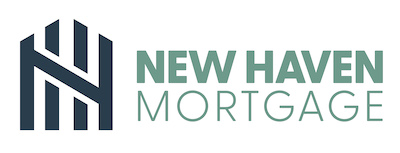
15 Mar Mortgage Terms You Need to Know: A Guide for Homebuyers
Buying a home is an exciting and significant milestone in life, but the world of mortgages can be overwhelming, especially if you’re a first-time homebuyer.
The process comes with its own set of jargon and terms that may leave you scratching your head.
Keeping that in mind and to help you navigate the mortgage landscape with confidence, we’ve compiled a list of essential mortgage terms every potential homeowner should know
Down Payment
The down payment is the initial upfront payment made when purchasing a home. It is a percentage of the property’s total value and is paid in cash. The down payment amount can vary, but it typically ranges from 3% to 20% of the home’s purchase price. A larger down payment often results in lower monthly mortgage payments.
Principal
The principal is the amount of money borrowed to purchase a home, excluding interest. As you make monthly mortgage payments, a portion goes toward reducing the principal balance. Over time, this helps build equity in your home.
Interest Rate
The interest rate is the percentage of the loan amount charged by the lender for borrowing money. It directly affects the total cost of the mortgage. A lower interest rate can save you thousands of dollars over the life of the loan, so it’s beneficial to secure a favorable rate.
Amortization
Amortization refers to the process of paying off a mortgage through regular payments over a specified period, usually 15 to 30 years. Each payment consists of both principal and interest, with a larger portion going toward interest in the early years and more toward the principal in later years.
Fixed-Rate Mortgage vs. Adjustable-Rate Mortgage (ARM)
A fixed-rate mortgage maintains the same interest rate throughout the entire loan term, providing predictability and stability in monthly payments. On the other hand, an adjustable-rate mortgage (ARM) has an interest rate that may change periodically, affecting your monthly payment. It’s essential to understand the terms and potential fluctuations when choosing between the two.
Closing Costs
Closing costs are fees associated with finalizing the home purchase. They include expenses such as appraisal fees, title insurance, legal fees, and more. Homebuyers are typically responsible for these costs, and they usually amount to 2-5% of the home’s purchase price. Understanding and budgeting for closing costs is crucial for financial planning.
Escrow
Escrow is an account held by a third party, often the title company, to manage funds related to the home purchase. This includes the earnest money deposit and other payments for property taxes, homeowners insurance, and mortgage insurance. The escrow process ensures that all financial transactions are completed correctly and fairly.
Private Mortgage Insurance (PMI)
PMI is insurance that protects the lender in case the borrower defaults on the mortgage. It is typically required when the down payment is less than 20% of the home’s purchase price. While PMI benefits the lender, the borrower pays the premiums, so understanding when and how to eliminate PMI is crucial for managing homeownership costs.
Appraisal
An appraisal is a professional assessment of a property’s value conducted by a licensed appraiser. Lenders require appraisals to ensure that the home’s value justifies the loan amount. If the appraisal comes in lower than expected, it can impact the loan approval and may require negotiation between the buyer and seller.
Pre-approval vs. Pre-qualification
Pre-qualification is an informal estimate of how much a borrower can afford based on their financial information. Pre-approval, on the other hand, involves a more in-depth analysis by a lender and provides a conditional commitment for a specific loan amount. Sellers often prefer buyers with pre-approval, as it indicates a higher likelihood of a smooth and successful transaction.
Understanding mortgage terms will help you on your home buying journey
Understanding these key mortgage terms can empower you as a homebuyer, making the process more transparent and less daunting.
Take the time to educate yourself and consult with mortgage professionals to ensure you make informed decisions on your homeownership journey.
Remember, a well-informed buyer is better positioned to secure the right mortgage and embark on the path to a successful and rewarding homeownership experience.
If you’re ready to start your home journey, contact us today and let us know how we can help.

